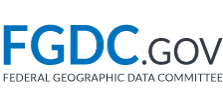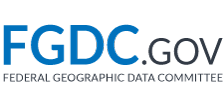The goal for this project is to enhance organizational and institutional capacity to develop and share digital geospatial data resources in California by conducting interagency and public outreach and developing a Draft Geospatial Framework Data Strategic plan for the State. This is intended to be a “living” document. The project will develop a list of critical geospatial framework data, stakeholders and sponsoring agencies, propose data sharing actions and priorities, and conduct dialog forums on the plan, which will set the stage for operational collaboration and cost sharing.
Proposed Outcomes and Deliverables:
- Develop a draft geographic information strategic and framework data development plan for the State addressing multi-level governmental data collaboration.
- Initiate geospatial data development collaboration and reduce overall, long-term data development costs by setting, where possible, common data priorities.
- Expand California’s geospatial framework data inventory to enable improved access and use.
- Advance the development of existing GIS collaboratives and “next steps” planning, and increase participation in California and national geospatial data programs.
- Convene five outreach meetings across California to: a) collect input from regional GIS collaboratives/councils and the public on Geospatial framework datasets for California and regional priorities, and b) learn from others about such things as Framework data definitions, regional GIS collaboratives, The National Map, the California Environmental Information Catalog (metadata cataloging), metadata development tools, Geospatial One-stop, and national geographic information standards.
- Compile a summary report of the input received from stakeholders at outreach meetings.
- Conduct outreach to other regional organizations, such as a metropolitan planning offices, watershed councils, economic development boards, emergency responders, councils of government, Federal agencies, and others that can benefit from geospatial solutions to community challenges.
- Enhance the State GIS Council Web site to include links to existing standards & protocols, data sources, regional collaboratives, helpful websites, and on-line tutorials.
- Investigate alternative fiscal models to address funding and equity participation for multiagency geospatial initiatives.
- Gain support and membership from data user organizations (e.g., regional GIS collaboratives and regional URISA chapters)
California Geographic Information Association
Contact:
John Ellison, California Resources Agency
916-653-2238
John.ellison@resources.ca.gov
Other contacts:
George White, California Geographic Information Association
510-839-7132
gwhite@4piw.com
Ray McDowell, California Resources Agency
916-653-7142
Ray.mcdowell@resources.ca.gov

